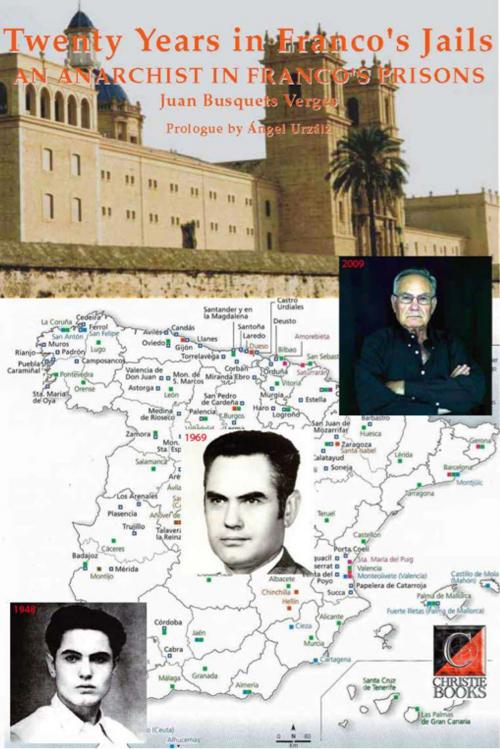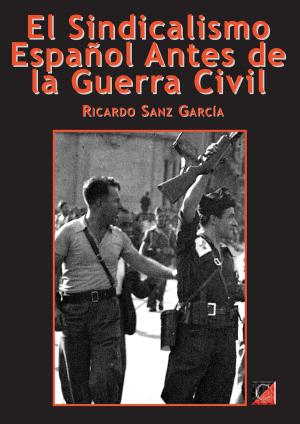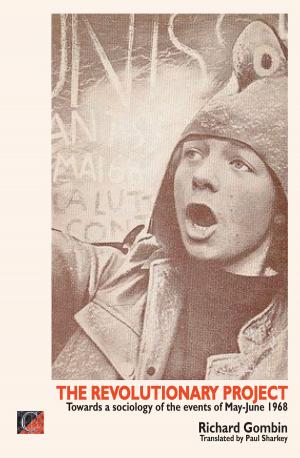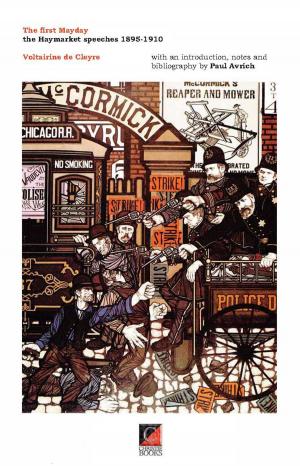Twenty Years in Franco's Jails
AN ANARCHIST IN FRANCO'S PRISONS
Nonfiction, History, Spain & Portugal, Biography & Memoir, Political, Historical| Author: | Juan Busquets Verges | ISBN: | 1230000271947 |
| Publisher: | ChristieBooks | Publication: | October 3, 2014 |
| Imprint: | Language: | English |
| Author: | Juan Busquets Verges |
| ISBN: | 1230000271947 |
| Publisher: | ChristieBooks |
| Publication: | October 3, 2014 |
| Imprint: | |
| Language: | English |
JUAN BUSQUETS VERGES was only 21 when he was arrested for his activities with the anti-Francoist urban and rural anarchist guerrillas in 1949. He was among the few fortunates to have his death sentence commuted to one of life imprisonment. Busquets made a number of attempts to escape, the final one, ending with him falling 30 feet and breaking his leg. Remaining quiet and unseen he crawled to a ditch where he lay in agony until the morning when the guards found him. They battered him with the butts of their rifles until he was unconscious, breaking his nose as well as his leg, and kept him for two months, without treatment, in solitary confinement.
Born into an anarcho-syndicalist family in Catalonia, a region of Spain in which — at the time – around three-quarters of the workers were unionised in the anarcho-syndicalist Confederación Nacional del Trabajo (CNT), the injustices and provocations of everyday life in Franco’s Spain were equally important in awakening Busquets’ irrepressible rebellious spirit. However, it was not until he moved to the French mining town of Cransac and met the young anarchist coalminers that he became more deeply involved in raising financial and moral support for those still struggling inside Spain against Francoism. Fund-raising proved not to be enough and Busquets made contact with the rural guerrilla leader Marcelino Massana at a small Toulouse hotel located near the offices of the Intercontinental Committee of the CNT. Massana tried to talk the young Busquets out of his plan, but to no avail — as the following story shows.
My own first meeting with Juan Busquets Verges came many years later, in 1965, in the 7th Gallery of the notorious Prisión Provincial de Madrid in Carabanchel Alto, Spain′s central clearing prison; he was in transit to Burgos following one of his many visits to the prison hospital of Yeserias, and we established an unquestioning friendship that has lasted more than 40 years. He still walked with a limp and his nose remained broken. It was Busquets who kept me informed on the situation of the comrades in Burgos and other prisons and on the situation of my co-defendant Fernando Carballo Blanco. Busquets′s regular visits to Yeserias involved complicated and tiring transit movements through the prisons of Francoist Spain, which meant he played a crucial role in the clandestine inter-prison communication network linking Franco′s anarchist prisoners of the Confederación Nacional del Trabajo (CNT) and the Federación lbérico de Juventudes Libertarias (FIJL). Busquets also ensured that I received regular monthly payments from the Prisoners′ Defence Committee in Toulouse. These were paid on a monthly basis into my prison account from, alternately, George, Paul, John and Ringo — presumably the only English names known to those responsible for coordinating prisoner support. The story that circulated as a result, that the ′Beatles′ were ′sponsoring′ me, lent me considerable kudos.
The story of Juan Busquets Verges is that of the ′Just Man′ — the cream of a generation whose selflessness and courage in the struggle against a tyrannical and ruthless regime — has been overlooked or ignored by historians, but hopefully it will provide an exemplary model for the ′Just′ of generations yet unborn. - Stuart Christie
JUAN BUSQUETS VERGES was only 21 when he was arrested for his activities with the anti-Francoist urban and rural anarchist guerrillas in 1949. He was among the few fortunates to have his death sentence commuted to one of life imprisonment. Busquets made a number of attempts to escape, the final one, ending with him falling 30 feet and breaking his leg. Remaining quiet and unseen he crawled to a ditch where he lay in agony until the morning when the guards found him. They battered him with the butts of their rifles until he was unconscious, breaking his nose as well as his leg, and kept him for two months, without treatment, in solitary confinement.
Born into an anarcho-syndicalist family in Catalonia, a region of Spain in which — at the time – around three-quarters of the workers were unionised in the anarcho-syndicalist Confederación Nacional del Trabajo (CNT), the injustices and provocations of everyday life in Franco’s Spain were equally important in awakening Busquets’ irrepressible rebellious spirit. However, it was not until he moved to the French mining town of Cransac and met the young anarchist coalminers that he became more deeply involved in raising financial and moral support for those still struggling inside Spain against Francoism. Fund-raising proved not to be enough and Busquets made contact with the rural guerrilla leader Marcelino Massana at a small Toulouse hotel located near the offices of the Intercontinental Committee of the CNT. Massana tried to talk the young Busquets out of his plan, but to no avail — as the following story shows.
My own first meeting with Juan Busquets Verges came many years later, in 1965, in the 7th Gallery of the notorious Prisión Provincial de Madrid in Carabanchel Alto, Spain′s central clearing prison; he was in transit to Burgos following one of his many visits to the prison hospital of Yeserias, and we established an unquestioning friendship that has lasted more than 40 years. He still walked with a limp and his nose remained broken. It was Busquets who kept me informed on the situation of the comrades in Burgos and other prisons and on the situation of my co-defendant Fernando Carballo Blanco. Busquets′s regular visits to Yeserias involved complicated and tiring transit movements through the prisons of Francoist Spain, which meant he played a crucial role in the clandestine inter-prison communication network linking Franco′s anarchist prisoners of the Confederación Nacional del Trabajo (CNT) and the Federación lbérico de Juventudes Libertarias (FIJL). Busquets also ensured that I received regular monthly payments from the Prisoners′ Defence Committee in Toulouse. These were paid on a monthly basis into my prison account from, alternately, George, Paul, John and Ringo — presumably the only English names known to those responsible for coordinating prisoner support. The story that circulated as a result, that the ′Beatles′ were ′sponsoring′ me, lent me considerable kudos.
The story of Juan Busquets Verges is that of the ′Just Man′ — the cream of a generation whose selflessness and courage in the struggle against a tyrannical and ruthless regime — has been overlooked or ignored by historians, but hopefully it will provide an exemplary model for the ′Just′ of generations yet unborn. - Stuart Christie















